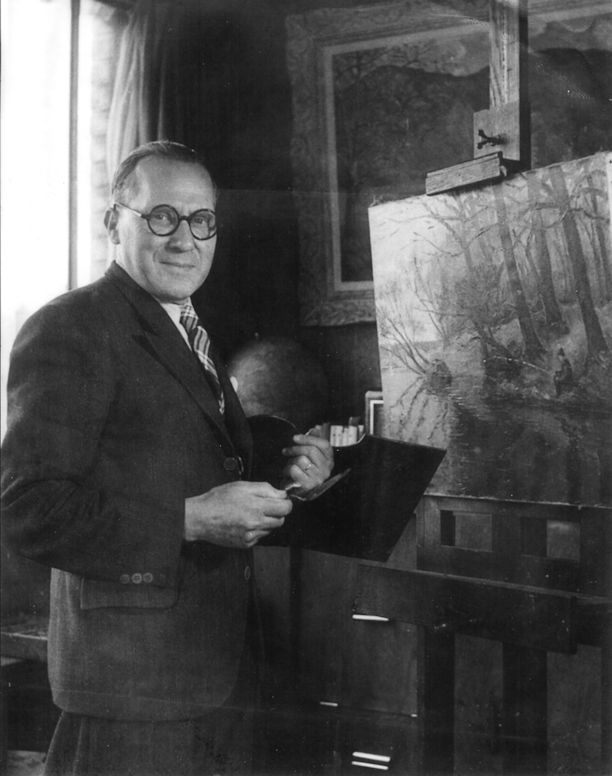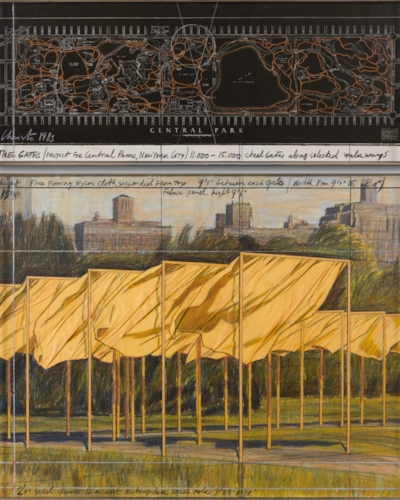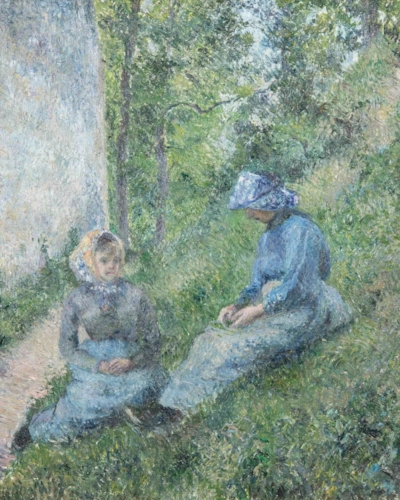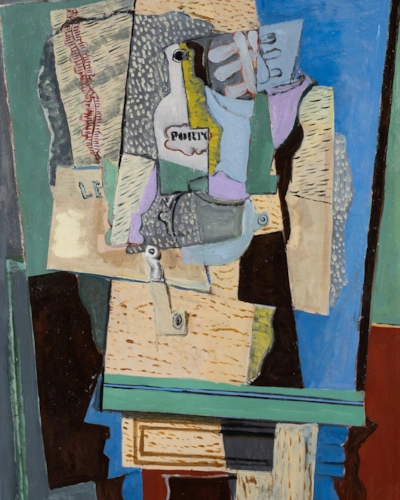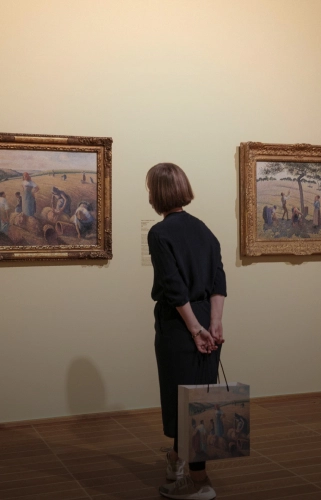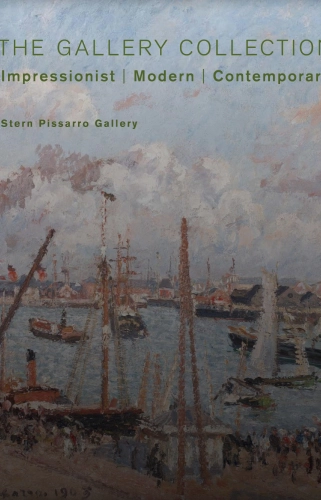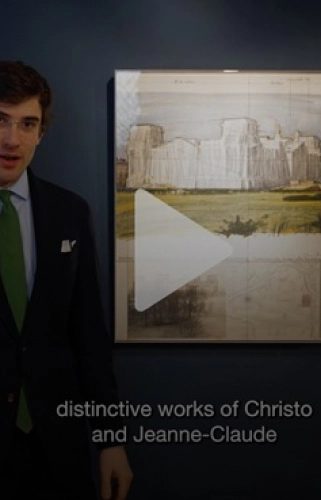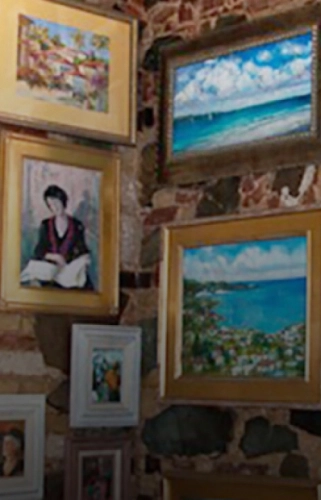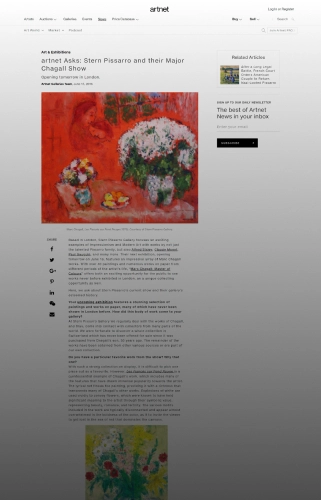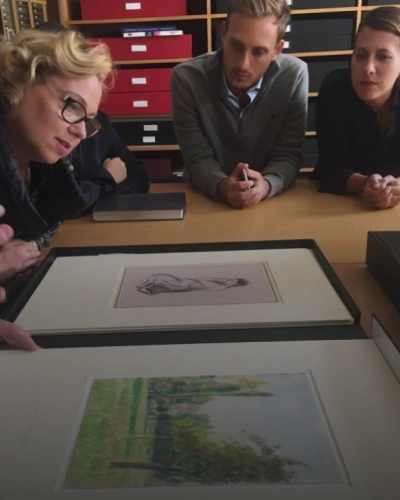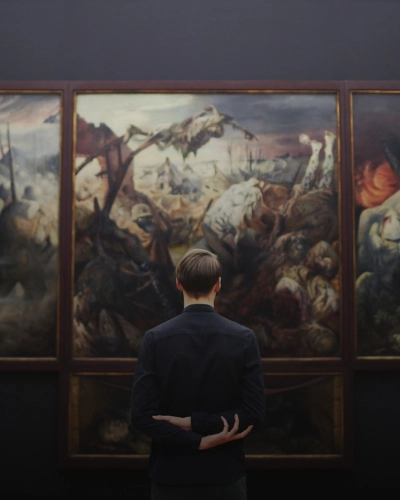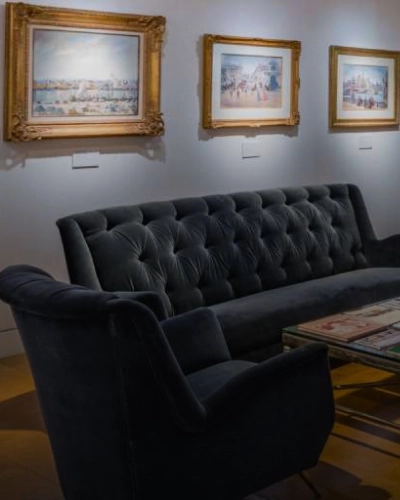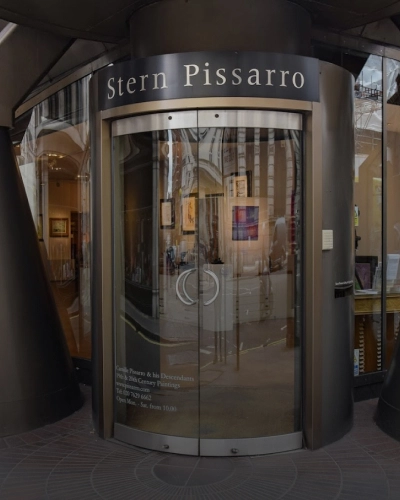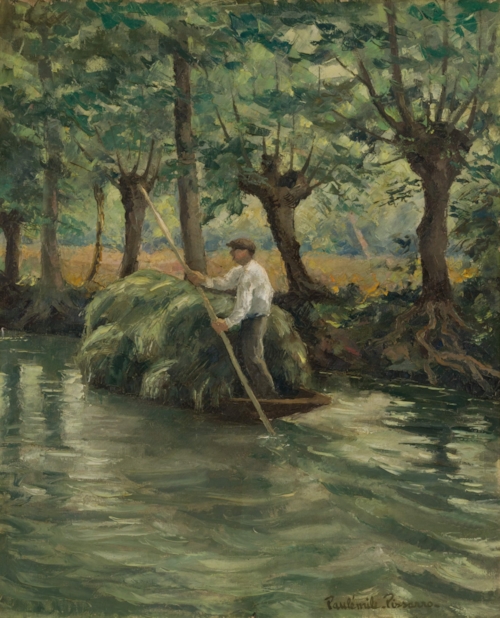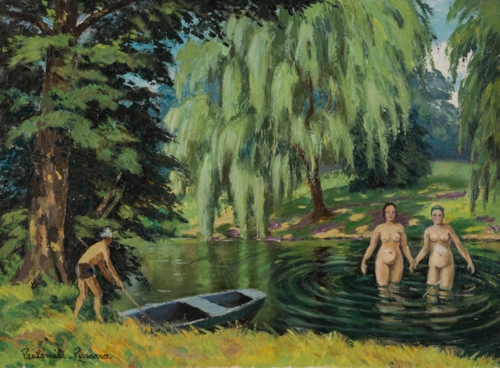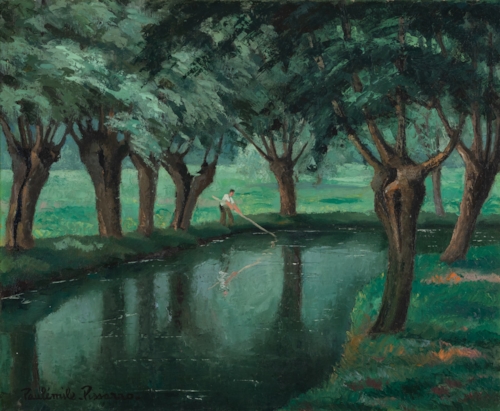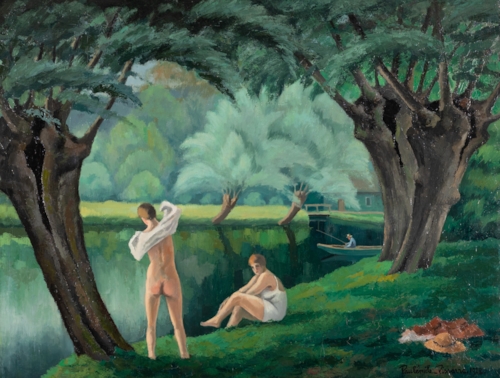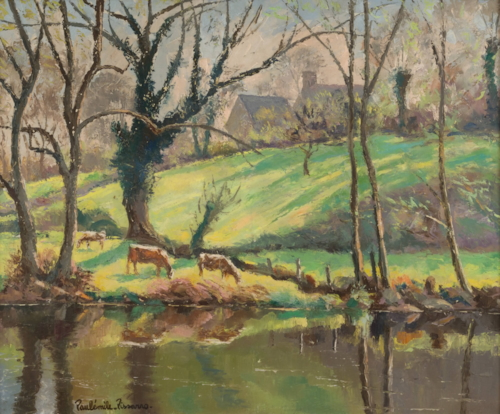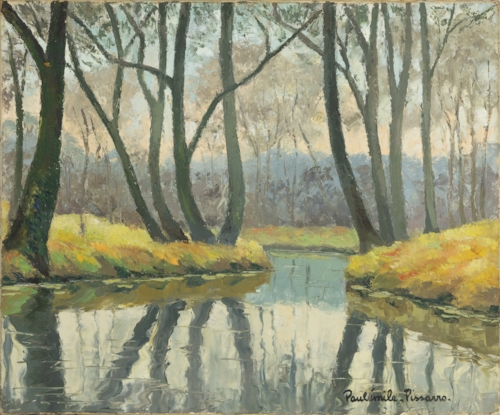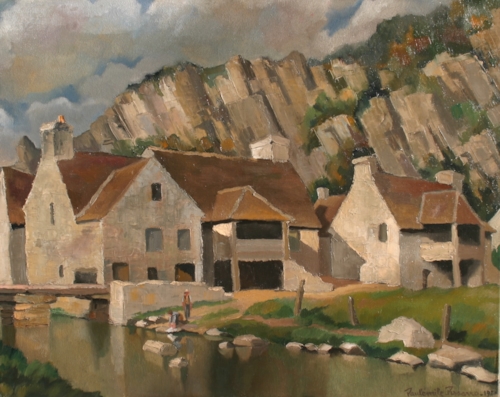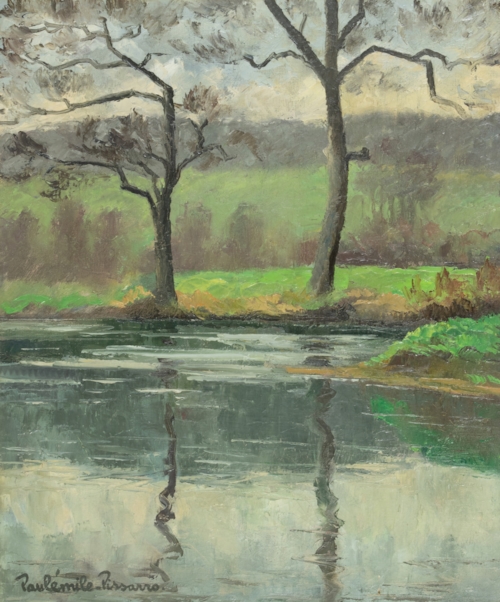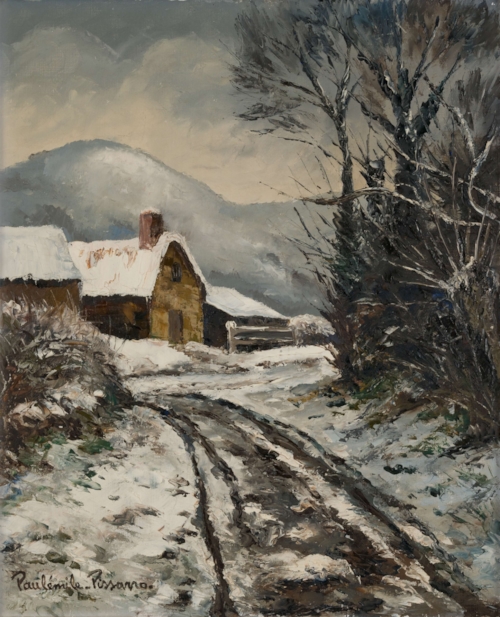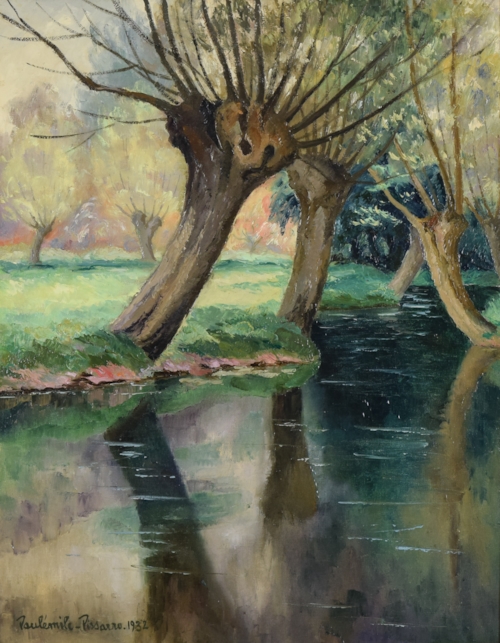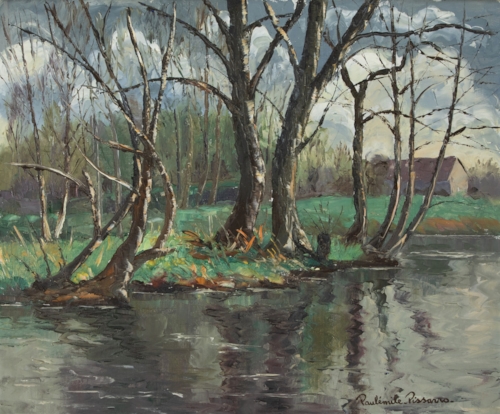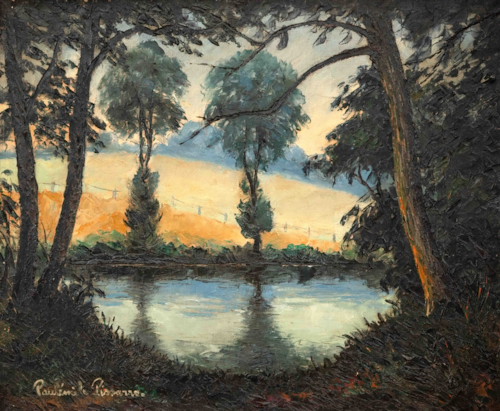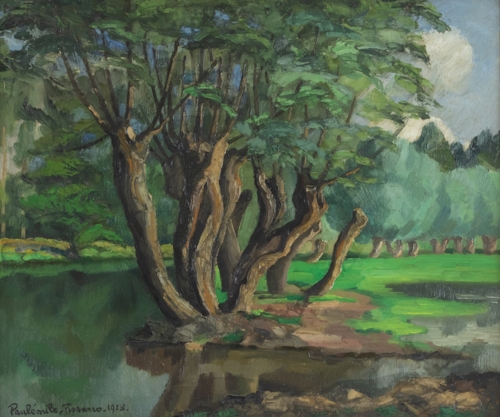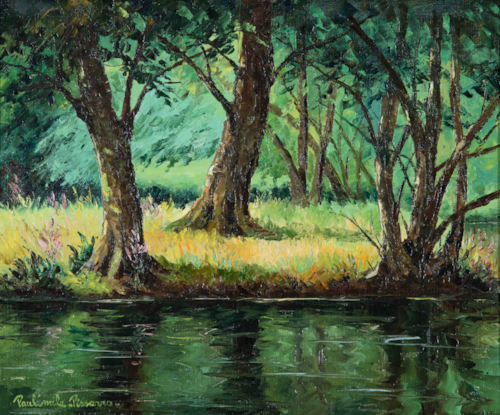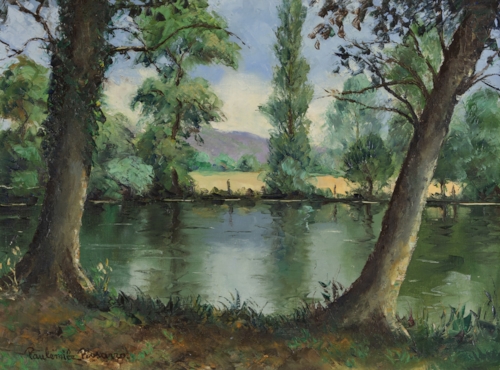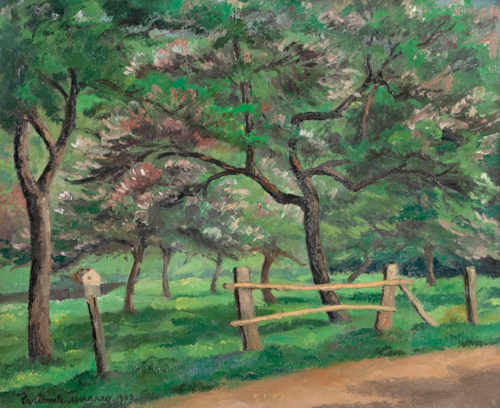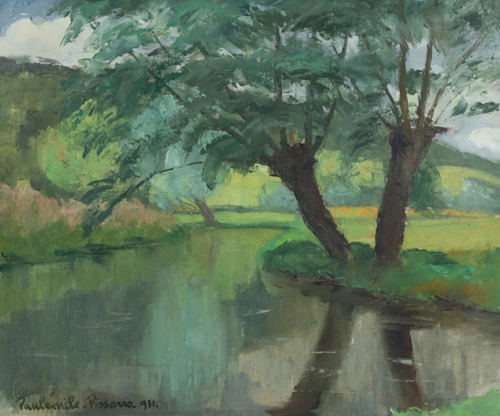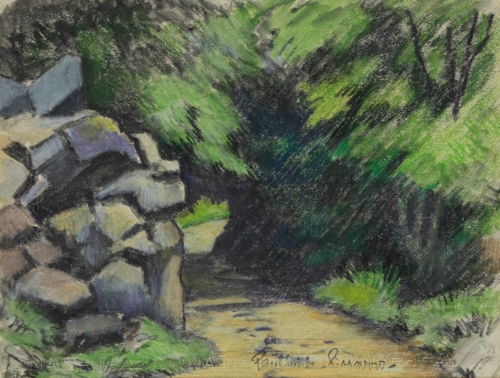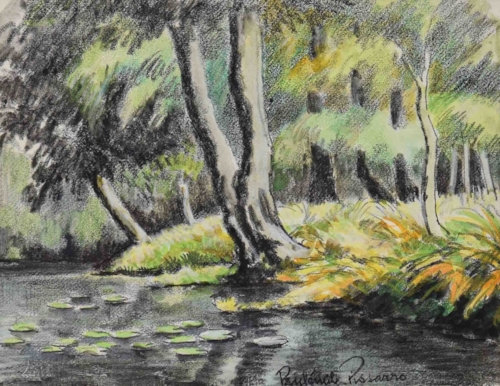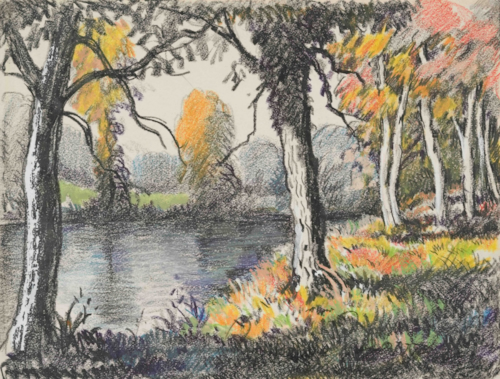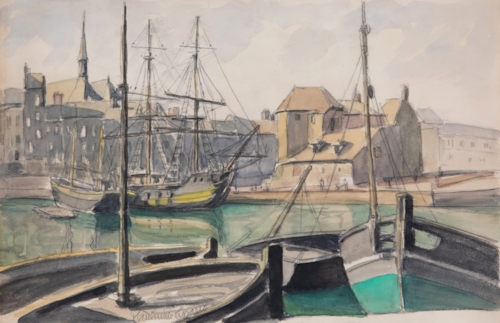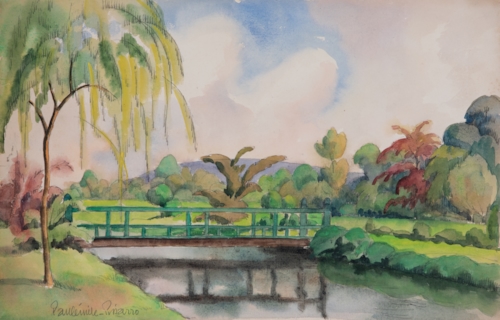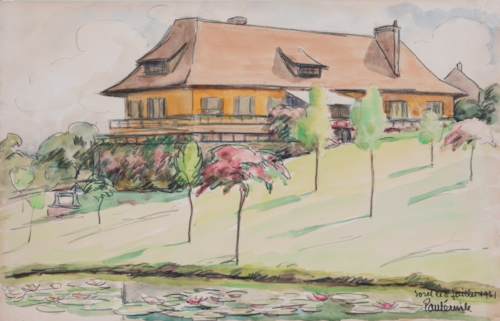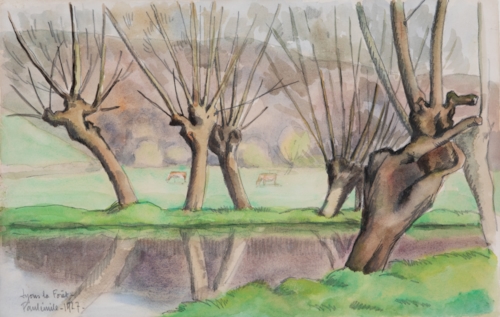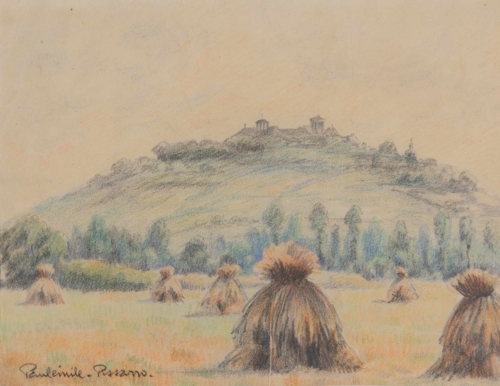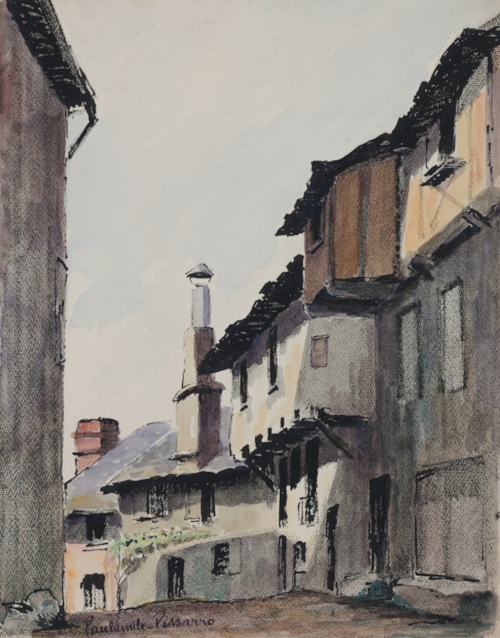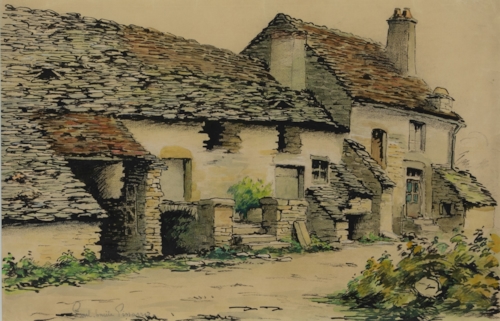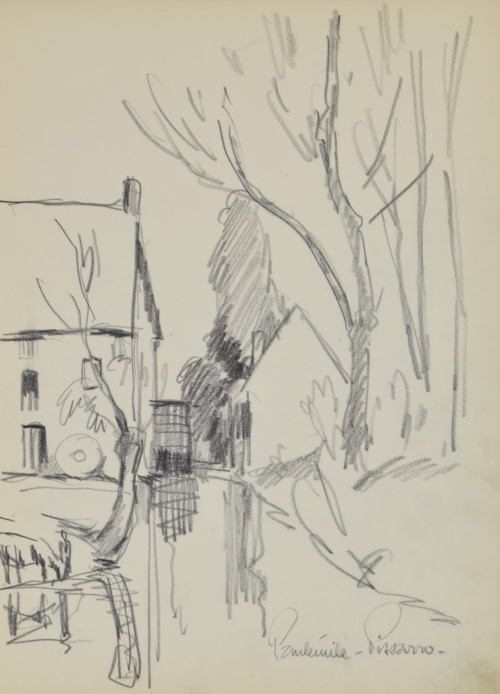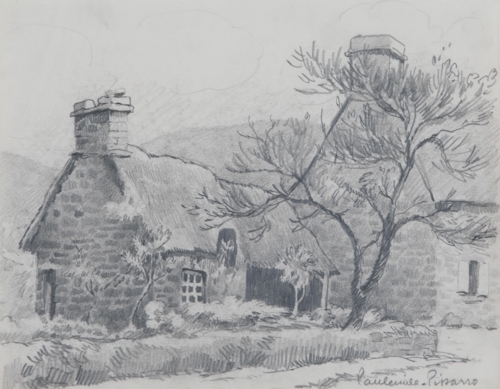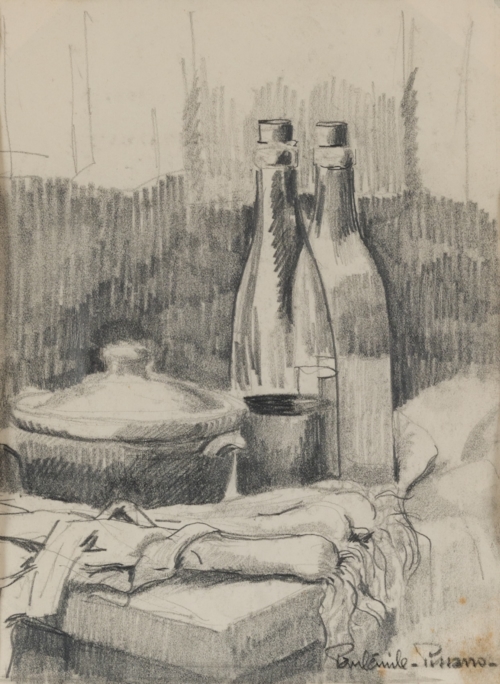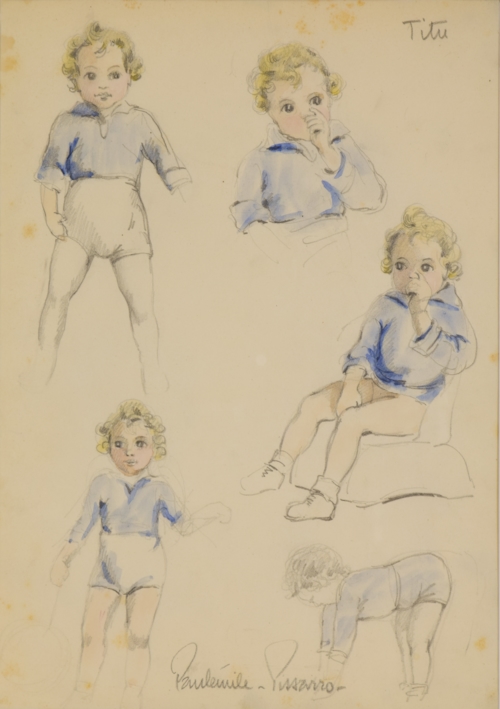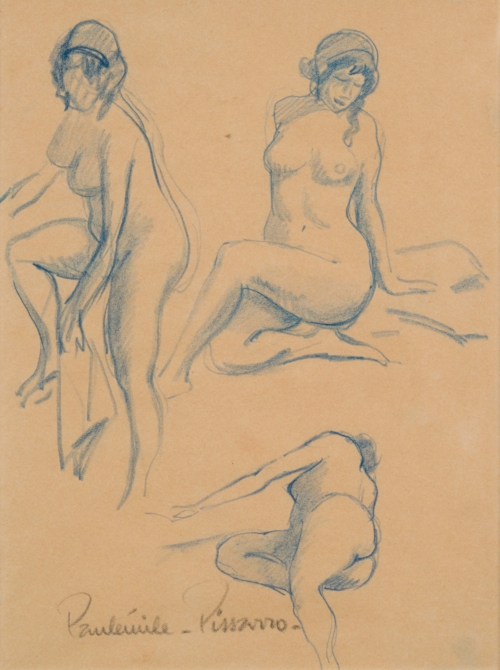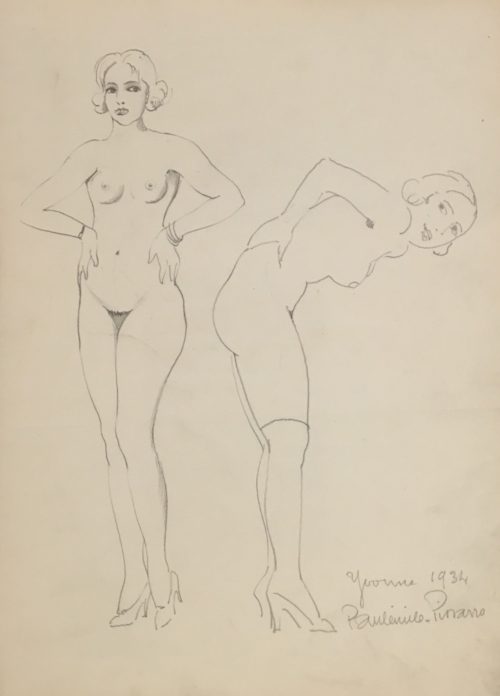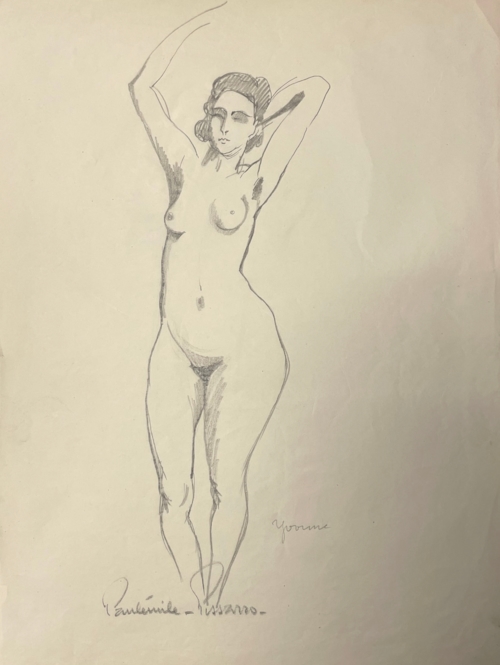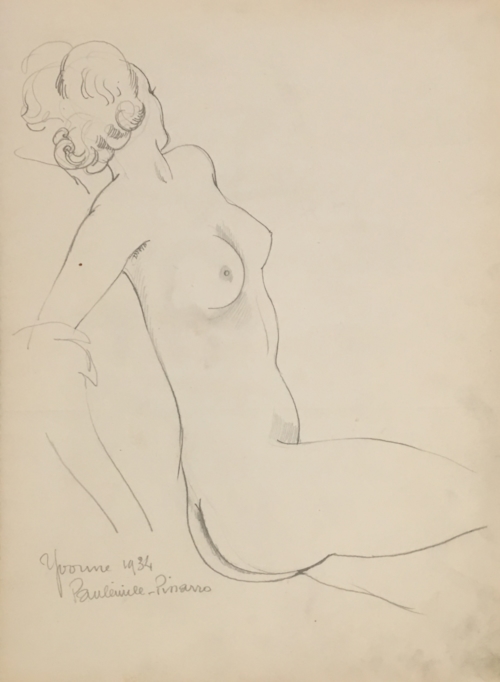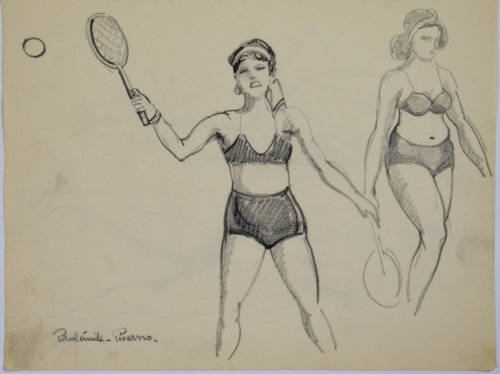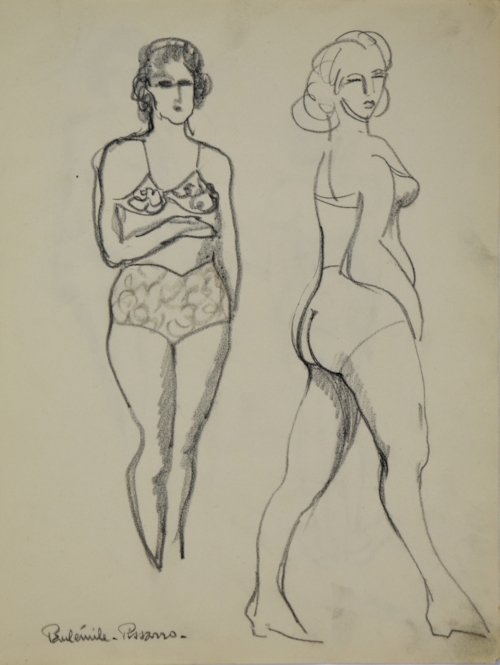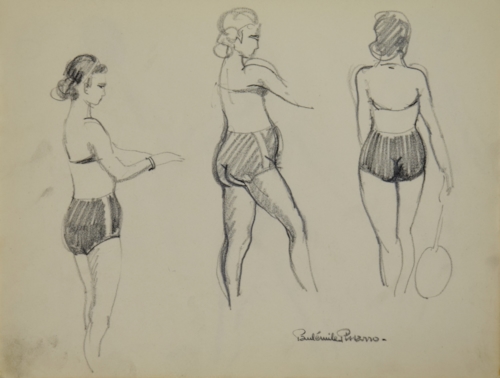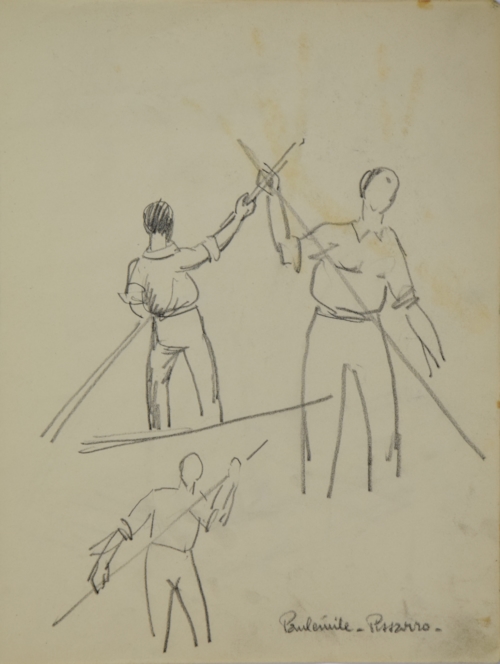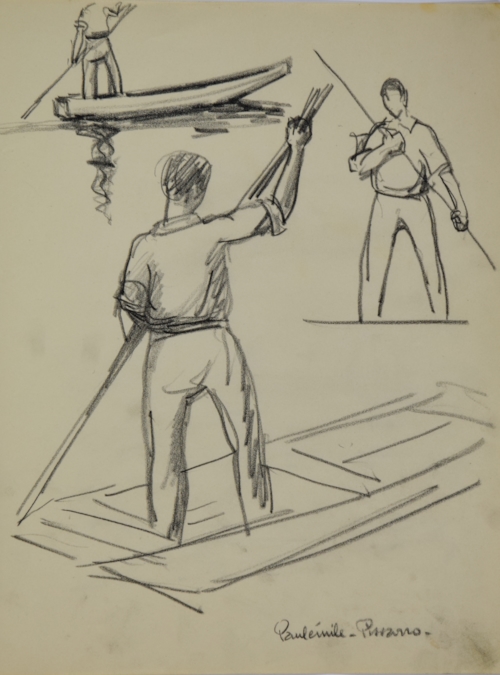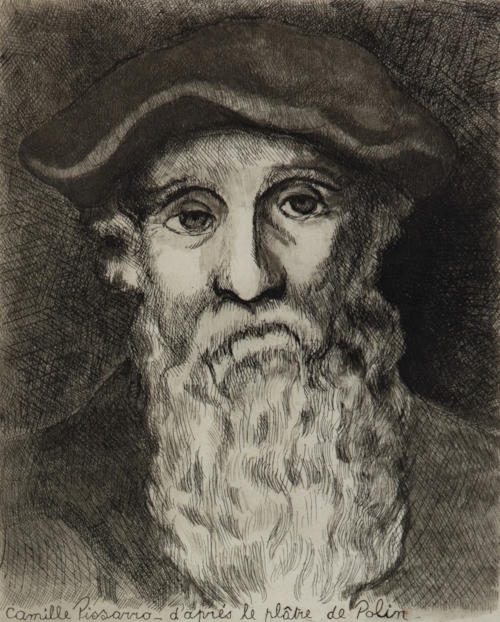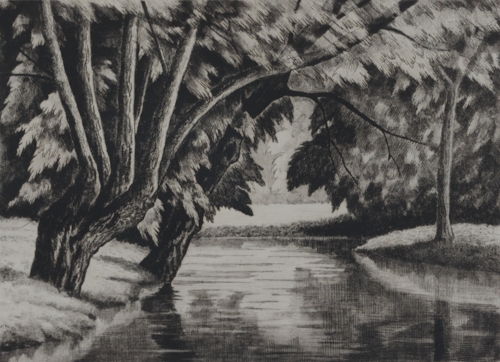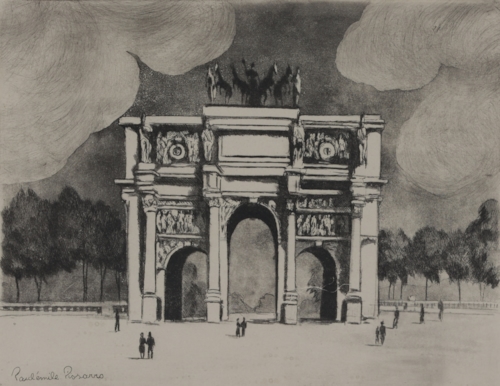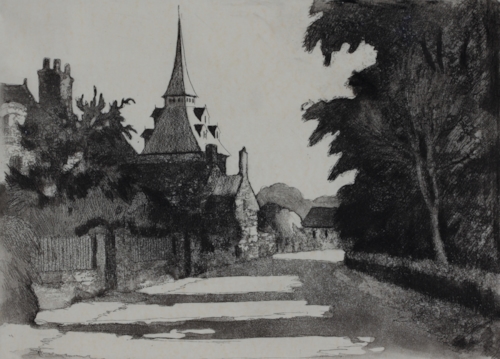Paulémile Pissarro
(1884 - 1972)
Rivière Saulaie à Lyons-la-Forêt, Eure
60 x 73 cm (23 ⁵/₈ x 28 ³/₄ inches)
Anciennes Tanneries à Domfront
60.5 x 76.5 cm (23 ⁷/₈ x 30 ¹/₈ inches)
Les deux arbres au bord de la rivière dans la forêt de Lyons
65 x 54 cm (25 ⁵/₈ x 21 ¹/₄ inches)
La Corderie et le Pain de Sucre
65 x 54 cm (25 ⁵/₈ x 21 ¹/₄ inches)
Les Bords de l’Orne au Soleil Couchant
54 x 65 cm (21 ¹/₄ x 25 ⁵/₈ inches)
Bord de Riviere Soleil Couchant
46 x 55 cm (18 ¹/₈ x 21 ⁵/₈ inches)
Un Chemin dans la Forêt
24 x 31 cm (9 ¹/₂ x 12 ¹/₄ inches)
L'Ile des Oiseaux
23 x 31 cm (9.06 x 12 ¹/₄ inches)
Paysage sous la neige
20 x 28 cm (7 ⁷/₈ x 11 inches)
Le lac en automne
25 x 32.8 cm (9 ⁷/₈ x 12 ⁷/₈ inches)
Port de Honfleur
31.5 x 47.7 cm (12 ³/₈ x 18 ³/₄ inches)
Scène de rivière, près de Lyons-la-Forêt
31.5 x 48.3 cm (12 ³/₈ x 19 inches)
Les Nénuphars à Sorel
32.5 x 50.3 cm (12 ³/₄ x 19 ³/₄ inches)
L'Église de Morgny-Eure
31.5 x 43.5 cm (12 ³/₈ x 17 ¹/₈ inches)
River Eure, Lyons la Forêt
31.5 x 48.5 cm (12 ³/₈ x 19 ¹/₈ inches)
Le marché aux bestiaux
23.7 x 31.2 cm (9 ³/₈ x 12 ¹/₄ inches)
Meules de foin
19.5 x 25 cm (7 ⁵/₈ x 9 ⁷/₈ inches)
Village in Normandy
40 x 31.2 cm (15 ³/₄ x 12 ¹/₄ inches)
Le corps de ferme
29.7 x 46.8 cm (11 ³/₄ x 18 ³/₈ inches)
Nature morte avec bouteilles et poireau
26 x 19 cm (10 ¹/₄ x 7 ¹/₂ inches)
Études sur Titu
33.5 x 23.6 cm (13 ¹/₄ x 9 ¹/₄ inches)
Yvonne tenant une raquette de tennis
20.2 x 27 cm (8 x 10 ⁵/₈ inches)
Camille Pissarro – d’après le plâtre de Polin
20.4 x 16.5 cm (8 x 6 ¹/₂ inches)
Paulémile Pissarro
biography
In 1905 Paulémile exhibited at the Salon des Indépendants for the first time. Although his father had supported Paulémile’s desire to be an artist, his mother was eager for him to learn a more practical trade. Therefore in 1908 he put aside his artistic pursuits to work as an automobile mechanic and test-driver, then later as a lace and textile designer, allowing him only a limited time to paint. Paulémile only fully dedicated himself to painting following a letter from his brother Lucien in London, who wrote to invite him to take part in an exhibition held in London. Subsequent to the successful sale of a number of watercolours he had sent over, the young artist became inspired to leave the textile factory and pursue a career in art.
By the 1920s Paulémile had become an established Post-Impressionist artist in his own right, spending the summer months escaping from Paris on painting trips with fellow artists Kees Van Dongen, Raoul Dufy, Maurice de Vlaminck and André Dunoyer de Segonzac. In 1922 Paulémile purchased a house in Lyons-la-Forêt, a small village within the region of his hometown of Éragny and Giverny, where he moved in with his first wife Berthe Bennaiche. During this time, he developed a form of Cubism inspired by Paul Cézanne whom he dearly admired, creating some wonderful paintings of the river Eure and its surrounding villages. There he formed a close friendship with his neighbour, the famous Art Deco designer Émile-Jacques Ruhlmann, who designed a stunning Art Deco studio for Paulémile adjacent to his house.
In 1930 he visited and fell in love with the Swiss Normandy area in the Calvados region, in particular the River Orne which runs through the valley adjacent to the villages of Clécy and St. Remy. The combination of rolling hills, bold meadows and the calm river weaving its way through the landscape offered Paulémile a new burst of inspiration. With his second wife Yvonne Beaupel, Paulémile eventually moved to Clécy in 1935, where he would remain for the rest of his life. Of their three children, both H. Claude and Yvon also became artists.
With his house backing on to the river Orne, Paulémile developed a new way of working using a boat as a floating studio, where he spent countless days painting the calm waters from between the riverbanks. Here the influence of his godfather Claude Monet became apparent, particularly in Paulémile’s depiction of water, which was revolutionised by the Impressionist icon. He also applied Monet’s lessons in horticulture to the creation of an abundant garden, offering him many more motifs for his new paintings. Alongside these river landscapes, he also painted the neighbouring hayfields, various snow scenes, some interiors and still lives. The most ambitious work in his oeuvre was a fresco painted on all four walls of his own dining room, depicting the adjacent river in which he includes family members, neighbours and friends.
In 1967 Paulémile had his first one-man show in the United States at Wally Findlay Galleries in New York. This led to widespread recognition and a degree of professional success that few Pissarro artists knew during their lifetime. Since his death in 1972, Paulémile remains one of the best known of Camille’s sons.
Paulémile Pissarro
biography
